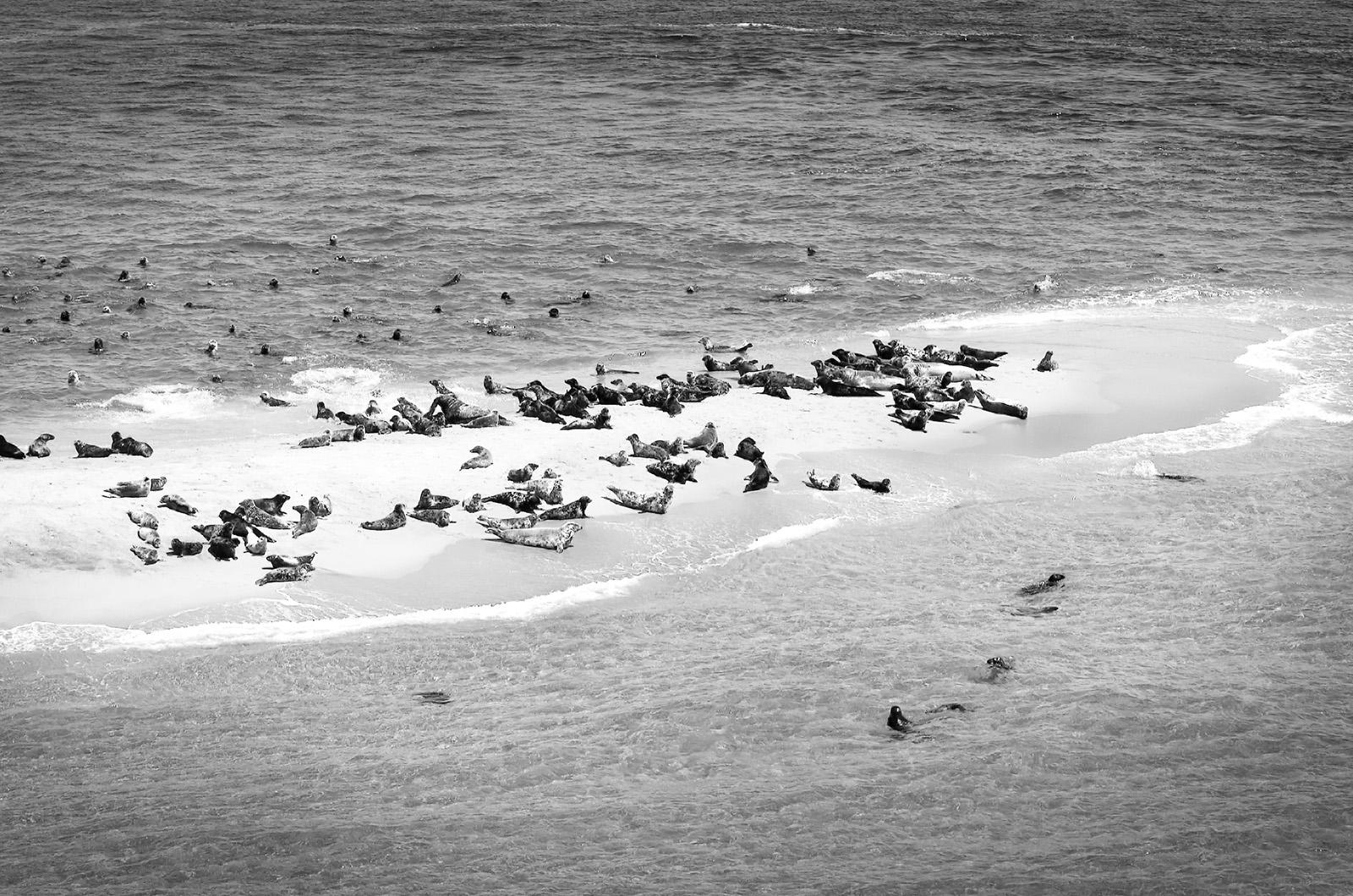From the Feb. 9, 1940 edition of the Vineyard Gazette:
The big news of the week was the break in the weather, which took place Tuesday night, after a glorious springlike day, when rain and above-freezing temperatures started a February thaw to replace that which failed to arrive in January. The thaw continued on Wednesday, a dour sort of day, and the temperature yesterday, another revivifying sunlit day, was above freezing. The ground was frozen again this morning, but the snow was gone, the streets free of ice, with the ponds still in prime condition for sport.
Like the plot from a movie, and as hair-raising in character, was the adventure of Rep. Joseph A. Sylvia and Air Pilot Phil Desmarias of Oak Bluffs, who landed on Skiff’s Island in a plane and are living today simply because they were resourceful and the fates were kind to them.
Flying low, about 4 o’clock on Monday afternoon, the two were attracted by the great number of seals that were hauled out on Skiff’s, that low, shifting sandbar a mile off Pocha. Mr. Desmarias landed on the island without difficulty, and the two began to inspect the seal herd, which was considerable in size. A couple of pups claimed their attention, snowy white, and small. In order to better examine one of the pups, the two adventurers caught one, which, bawling lustily, aroused the herd. Bellowing females, and bulls that weighed a quarter-ton or more, half surrounded the two men, snapping their teeth and threatening attack.
Alarmed, the two retreated to the plane, pursued by the angry seals. To their dismay they found that while they had watched the seals, the wheels of the plane had settled almost out of sight in the sand, which is of the “quick” variety. Still threatened by the seals, they tugged at the plane, freed the wheels and attempted to take off, but with each attempt the wheels simply settled again and the plane refused to roll.
Darkness was coming on and no one knew where they were. There was ample evidence that a high run of tides covers the island and both knew that seas frequently wash completely over it. Moreover, the temperature was well below freezing and the location offered no shelter. Altogether the situation looked desperate.
Near the edge of the water, the shore was covered with broken ice, rough but fairly substantial, and the two realized that their only chance to gather headway for a take-off was to drive the plane through this icy rubble. With the seals still crowding around them, bellowing fiercely, they hauled the plane down to the ice, and warming up the engine, made what they realized was their final attempt to take off. With many rough bounces the plane took the air, barely clearing the water as it lifted.
It is certainty that neither of the two will ever again land upon Skiff’s Island with a plane and that they will strongly advise others to avoid the place. Had they been marooned on the island there is little chance that they could have survived the night in the cold, as there was nothing from which to build a fire, and their chances of rescue were practically nil as Skiff’s cannot be seen from any occupied house on Chappaquiddick.
Skiff’s Island, according to tradition, was once a substantial piece of land, but it has been left for generations save the sandbar which sometimes looms high above the water, and at other times is marked merely by a few acres of coaming breakers. Boats and vessels, occasionally striking on Skiff’s, immediately begin to settle in the quicksand, and the only people landing there are occasional bird-banders, who sometimes visit the place in summer when conditions are safest. Seals know the place well, and whenever any part of the bar shows, a number of these animals may be found there. So rapidly does the size and shape of Skiff’s Island shift that a year ago when the sea had piled the sand very high, and had made a beautiful little harbor on one side, fishermen, steaming into this harbor, dared not anchor, for fear that the outer arms would close, encircling their boats.
This is being spoken of as an unusually cold winter, and so it is in a way, but a great deal depends upon the point of view. If one takes a detached look at a long period of Island history he will be forced to admit that neither hard winters nor mild winters are really unusual. For instance in the good old fashioned days when winters were supposed to be hard and bitter there was no time from 1846 to 1850 when the harbor at Nantucket had ice enough to bear the weight of a man. On the other hand, in 1876 ice seven inches in thickness was cut at Trapp’s Pond in December, and in March, 1872, there was ice four feet thick at the Vineyard Sound entrance of Woods Hole. After a cold winter such as the one of 1934 (or this one) the present generation may think it has seen everything, but there is still one old record unequaled. It is said that long ago, the year being unrecorded, loaded wagons were driven from Nantucket to the mainland over the ice.
Compiled by Hilary Wallcox
library@vineyardgazette.com




Comments (4)
Comments
Comment policy »